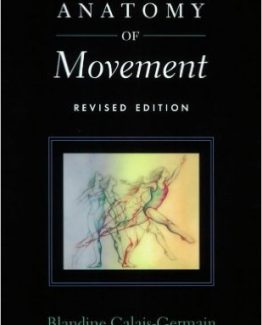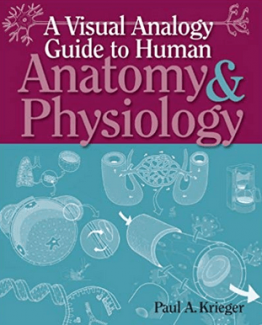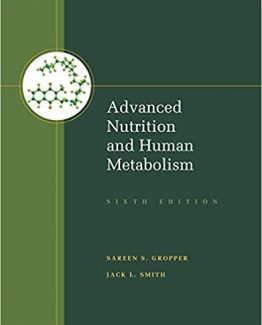Medical Sociology 15th Edition by William C. Cockerham, ISBN-13: 978-1032067933
[PDF eBook eTextbook]
- Publisher: Routledge; 15th edition (September 30, 2021)
- Language: English
- 466 pages
- ISBN-10: 1032067934
- ISBN-13: 978-1032067933
The most comprehensive major academic textbook available on its topic, this classic text presents the most important research studies in the field. The author integrates engaging first-person accounts from patients, physicians, and other health care providers throughout the text. Since its inception, this book’s principal goal has been to introduce students to the field of medical sociology and serve as a reference for faculty by presenting the most current ideas, issues, concepts, themes, theories, and research findings in the field. This new edition is heavily revised with updated data and important new additions.
Table of Contents:
Cover
Half Title
Title Page
Copyright Page
Dedication Page
Contents
Part I Introduction
1 Medical Sociology
The Social Determinants of Health
The Development of Medical Sociology
Parsons
Defining Health
Contrasting Ideas About Health and Social Behavior
Modern Medicine and the Regulation of the Body
The Public’s Health
The Germ Theory of Disease and the Search for “Magic Bullets”
Return to the “Whole” Person
The Reemergence of Infectious Diseases
Summary
Critical Thinking Questions
Suggested Readings
References
2 Social Epidemiology
Epidemiological Measures
The Development of Epidemiology
Disease and Modernization
The Complexity of Modern Ills
Heart Disease
Obesity
Pandemics
HIV/AIDS
Influenza
SARS
MERS
Ebola
Zika
Summary
Critical Thinking Questions
Suggested Readings
References
3 COVID-19
COVID-19: Origin, Transmission, and Spread
Airborne Transmission and Asymptomatic Individuals
COVID-19’s Initial Impact on Society
China
The Middle East and Europe
India, Africa, and Latin America
The United States
Canada
COVID-19: Social Patterns
Comorbid Conditions
Age
Race
Gender
Social Class
Resolution
Social Effects
Summary
Critical Thinking Questions
Suggested Readings
References
4 The Social Demography of Health: Social Class
The Components of Social Class
Social Class and Health Disparities
Equality of Care and the Social Gradient in Mortality: The British Experience
Neighborhood Disadvantage
Socioeconomic Status as a Fundamental Cause of Sickness and Mortality
Summary
Critical Thinking Questions
Suggested Readings
References
5 The Social Demography of Health: Gender
Male–Female Life Expectancy
Gender Differences in Morbidity
The Narrowing Gender Gap in Longevity
Rural Residence
Smoking
Gender and Mental Health
Gender and LGBTQ Health
Summary
Critical Thinking Questions
Suggested Readings
References
6 The Social Demography of Health: Age and Race
Age
Social Trends in Aging and Health
Life Course Theory
Race
Race as a Social Construction
Racism and Health
The Current Demographic Transition
Black Americans
Hispanic Americans
Native Americans
Asian Americans
Race and Mental Health
Summary
Critical Thinking Questions
Suggested Readings
References
Part II Health and Illness
7 Social Stress and Health
Cooley, Thomas, and Goffman: Symbolic Interaction
Durkheim: The Larger Society
Stress and the Body
Physiological Responses to Stress
Biomarkers
Social Factors and Stress
The Stress Process
Stress Adaptation
Stress and the Social Group
Social Capital
Stress and Socioeconomic Status
Life Changes
Extreme Situations
Life Events
Gene–Environment Interaction
Summary
Critical Thinking Questions
Suggested Readings
References
8 Health Behavior and Lifestyles
Health Lifestyles: Background
Weber: Lifestyles
Bourdieu: Lifestyles
A Theory of Health Lifestyles
Health Lifestyles: A Final Note on the Influence of Social Class
Preventive Care
Summary
Critical Thinking Questions
Suggested Readings
References
9 Illness Behavior and the Sick Role
Illness as Deviance
Self-Care
Social Networks
Sociodemographic Variables
Age and Gender
Race
Socioeconomic Status
The Sick Role
The Physician–Patient Role Relationship
Criticisms of the Sick Role
Medicalization/Biomedicalization
Summary
Critical Thinking Questions
Suggested Readings
References
Part III Providing Health Care
10 Doctor–Patient Interaction
Models of Interaction
Misunderstandings in Communication
Communication and Class Background
Male Physicians and Female Patients
Women Physicians
Cultural Differences in Communication
Patient Compliance/Adherence
The Future of Doctor–Patient Relations
Doctor–Patient Relations and New Technology
Internet Medicine
Telemedicine
Other Developments
The New Genetics
Privacy and Gene Ownership
Human Cloning
Summary
Critical Thinking Questions
Suggested Readings
References
11 Physicians
The Professionalization of the Physician
The American Medical Association
The Control of Medical Education
The Socialization of the Physician
Osteopaths
The Social Hierarchy of American Medicine
The Hospital
The Clientele
The Inner Fraternity–Sorority
Summary
Critical Thinking Questions
Suggested Readings
References
12 The Physician in a Changing Society
Social Control of Medical Practice
Countervailing Power
Government Regulation
Managed Care
The Coming of the Corporation
The Changing Doctor–Patient Relationship
The Deprofessionalization of Physicians
The Organization of Medical Practice
Summary
Critical Thinking Questions
Suggested Readings
References
13 Nurses, Physician Assistants, Pharmacists, and Midwives
Nursing Past and Present
The Early Development of Nursing as an Occupation
Florence Nightingale
Nursing Education
Nursing Students
Gender and “the Doctor–Nurse Game”
Nursing: Future Trends
Hospital Administration
The Nurse Practitioner/Clinician
Physician Assistants
Pharmacists
Midwives
Summary
Critical Thinking Questions
Suggested Readings
References
14 Complementary and Alternative Medicine (CAM)
Overview
Chiropractors
Religion and Faith Healing
Folk Healing
Black Folk Healers
Curanderismo Healing
Native American Healing: The Navajo and the Cree
Summary
Critical Thinking Questions
Suggested Readings
References
Part IV Health Care Delivery Systems
15 Hospitals
The Development of the Hospital as a Social Institution
Hospitals as Centers of Religious Practice
Hospitals as Poorhouses
Hospitals as Deathhouses
Hospitals as Centers of Medical Technology
Hospitals in the United States
Hospital Ownership
The Organization of the Non-profit Community Hospital
The Hospital: Dual Authority
The Hospital Patient Role
The Rising Cost of Hospitalization
Summary
Critical Thinking Questions
Suggested Readings
References
16 Health Care Reform and Health Policy in the United States
Rising Costs
The Road to Health Care Reform
The Emergence of Managed Care
State Efforts at Health Care Reform
Enactment of the Affordable Care Act
Legal Challenges to the Affordable Care Act
Trump’s Health Care Reforms and the Failed Repeal of the Affordable Care Act
Biden and the Future of Health Care Reform
Equity in Health Services
Geographic Distribution of Services
Overview of Health Care Delivery
Fee-for-Service Health Care
Health Care: A Right or a Privilege?
Summary
Critical Thinking Questions
Suggested Readings
References
17 Global Health Care
Socialized Medicine: Canada, Britain, and Sweden
Canada
Britain
Sweden
Decentralized National Health Programs: Japan, Germany, and Mexico
Japan
Germany
Mexico
Socialist Medicine: Alterations in Russia and China
Russia
China
Conclusion
Critical Thinking Questions
Suggested Readings
References
Name Index
Subject Index
William C. Cockerham is Distinguished Professor of Sociology and Chair Emeritus at the University of Alabama at Birmingham and Research Scholar of Sociology at the College of William & Mary in Williamsburg, Virginia, USA. He held secondary appointments in medicine and public health at UAB and is recipient of several awards for scholarly distinction. He is past President of the Research Committee on Health Sociology of the International Sociological Association and formerly was on the editorial boards of several journals, including the American Sociological Review and Society and Mental Health. Currently, he is deputy editor of the Journal of Health and Social Behavior. He has published numerous peer-reviewed papers and is author or editor of 20 books. Recent books are the Wiley Blackwell Companion to Medical Sociology ( 2021) and Social Causes of Health and Disease, 3rd ed. (2021). His newest books with Routledge are Sociological Theories of Health and Illness (2021), Sociology of Mental Disorder, 11th ed. (2021), and The COVID-19 Reader: What the Science Says About the Social (2021).
What makes us different?
• Instant Download
• Always Competitive Pricing
• 100% Privacy
• FREE Sample Available
• 24-7 LIVE Customer Support






Reviews
There are no reviews yet.